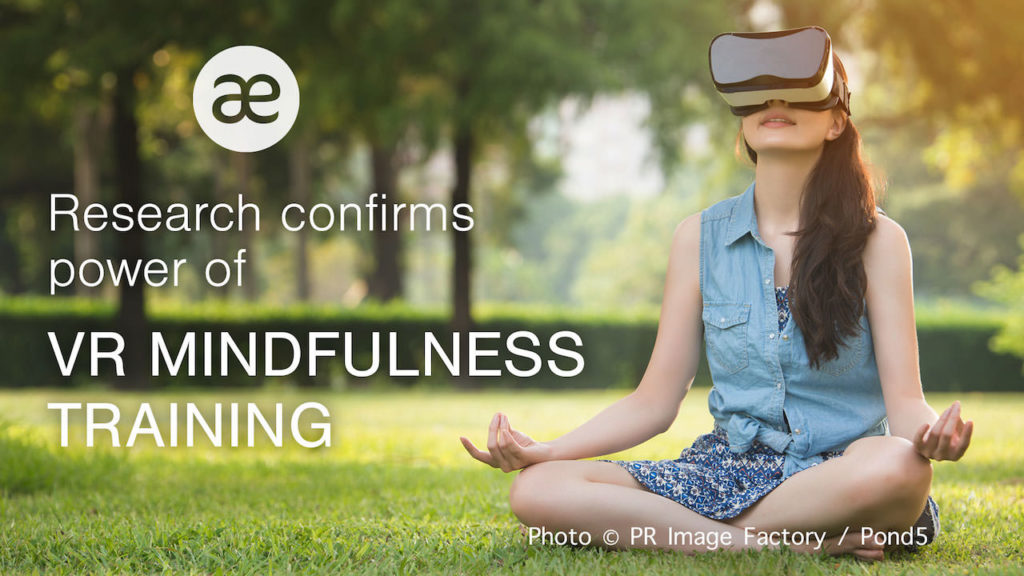New research shows that people who constantly get caught in a reiterative loop of negative thoughts and destructive self-reflection could benefit from VR mindfulness training
Mindfulness training research done at RMIT University in Melbourne confirms that mindfulness practitioners benefit greatly from the immersive nature of Atmosphaeres’ 360° VR Experiences, particularly if they wish to improve their decentring skills. Decentring is a person’s ability to view his or her thoughts and feelings with some distance and dis-identification and acknowledge them as temporary and passing events in the mind, rather than as actual manifestations of reality.

The experimental material and method
The RMIT experiment combined the early Atmosphaeres VR Experience “A Walk on the Beach”, shot on the magnificent Port Noarlunga beach in Australia, with an audio recording for mindfulness practice, titled “external world and breath”, which was obtained from the Counselling and Psychological Resources section of the University of Melbourne. Participants in a control group listened to the mindfulness training audio track only and were instructed to close their eyes during the exercise or to direct their gaze downward or steadily at a single location.
The Toronto Mindfulness Scale was used to assess two of thirteen mindfulness factors: curiosity and decentring. Curiosity reflects an attitude of interest, e.g. “I am curious about each of my thoughts and feelings as they occur”. Decentring reflects a shift away from personal identification with cognitions and feelings of one’s experience, e.g. “I am receptive to observing unpleasant thoughts and feelings without interfering with them”. Participants had to rate how well each statement represented their experiences before and after the brief mindfulness exercise.
Surprising results
While VR-based mindfulness training proved to be as effective as standard audio training in enhancing mindfulness overall, the more interesting outcome of the study was that VR-based mindfulness training is statistically significantly more effective at decentring than standard audio training*. This means that people who suffer from mood disorders could benefit from the increase in decentring that VR mindfulness offers. VR contexts could help those who constantly get caught in a cycle of negative thoughts and excessive, iterative reflection to cultivate decentring and to curb and reduce their negative thought patterns.
Mindfulness training and decentring for businesses and private users
The Atmosphaeres guided VR meditations, called Sphaeres, are already being used by hospitals, healthcare organisations and wellness app creators. The meditations have also found application in the transportation industry, where they are used in airplanes, on buses and in waiting areas such as airport lounges and doctor’s offices. Patient and user feedback has been very positive so far and more details about different business applications for Sphaeres VR Experiences are available here.
There also exists tremendous scope for use of the Sphaeres VR Experiences in the private space. Mindfulness practitioners are already harnessing the power of VR at home to decentre and experience a more objective awareness of their thoughts. Sphaeres VR Experiences are available on all major VR platforms, like Steam, Oculus Rift & Go, Viveport Video, VeeR and iTunes, and additional platforms are being added continuously. To find out more about current and upcoming VR Experiences, simply subscribe to the Atmosphaeres mailing list and social channels on Facebook, Twitter, LinkedIn and YouTube.
To read the abstract and the entire original research paper, go to: A virtual reality approach to mindfulness skills training
 RSS - Posts
RSS - Posts
Leave a Reply